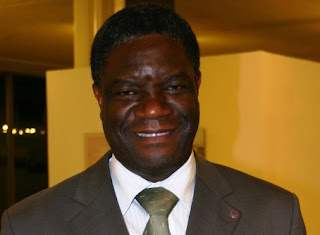On the evening of 25 October 2012 around 19:00, four
armed men, not in uniform, entered Dr. Denis Mukwege’s house in Bukavu,
Democratic Republic of Congo (DRC). The armed men forced Dr. Mukwege’s two
daughters and their friend at gunpoint to sit silently on the floor until he
returned home. On his arrival, roughly half an hour later, one of the armed men
opened the gate and forced Dr. Mukwege out of the vehicle and demanded he hand
over his keys. The security guard on duty ran out shouting to intervene
and was shot and killed. The armed men fired the remaining bullets at Dr.
Mukwege, who threw himself on the ground narrowly avoiding the gunfire. The men
then fled in Dr. Mukwege’s vehicle, which they quickly abandoned before
hijacking another vehicle. The identity of the armed men and their
current location is unknown.
Dr. Denis Mukwege is the founder and medical director of Panzi Hospital
in Bukavu, DRC. The hospital has become known worldwide for the treatment of
survivors of sexual violence and women in need of specialised gynaecological
care. Dr. Mukwege has been the recipient of numerous international awards
including the UN Human Rights Prize, African of the Year, the Olof Palme Prize
and the Clinton Global Citizen Award. He has been nominated several times for
the Nobel Peace Prize. These awards recognize his extraordinary service,
humanity and commitment.





